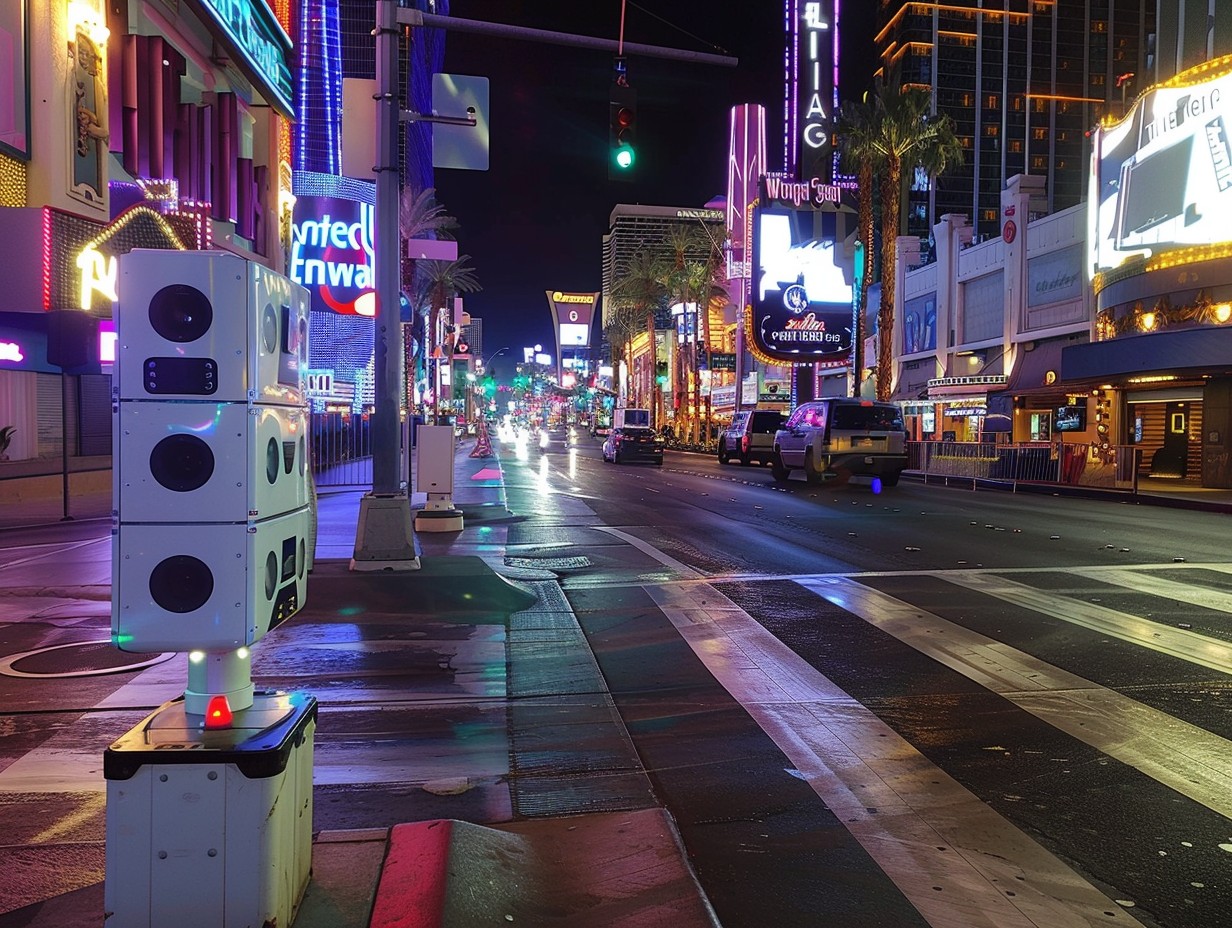Las Vegas has recently clinched a $1.4 million grant from the federal government. This amount is earmarked for a cutting-edge initiative aimed at protecting pedestrians through artificial intelligence (AI). Fremont Street, a bustling hub of activity, is set to become a pilot area for this AI pedestrian detection system. This technology promises to transform traffic management. It will tailor traffic signals and crosswalk timings to the real-time flow of pedestrian traffic.
Las Vegas make safer streets
Las Vegas’s busy streets will soon witness the deployment of an AI system designed to monitor pedestrian movement. By gauging the volume of foot traffic and the duration required for people to cross, this system will adjust traffic signals accordingly. The goal is to ensure that pedestrians can walk more safely and efficiently.
This project is a product of the Bipartisan Infrastructure Law. The Representative Dina Titus played a pivotal role in securing the funds. According to Titus, this initiative is not just about reducing accidents. It’s about making the city’s roads more accommodating for everyone, whether they’re on foot or behind the wheel.
Traffic system innovation
The Fremont Street corridor, chosen for this pilot program, is no stranger to foot traffic. With around 26 million visitors annually, this area is a magnet for tourists drawn to its vibrant atmosphere, iconic LED canopy, and plethora of shops, restaurants, and casinos. To manage this influx, the city plans to install adaptive traffic signals and an inclusive push-button system. This system is particularly thoughtful, offering longer crossing times for vulnerable road users through a government-issued concession card.
Spanning 16 intersections between Las Vegas Boulevard, Main Street, and stretching from Ogden to Carson avenues, the pilot aims to be up and running by early 2025. This initiative is part of Las Vegas’s broader Vision Zero program, which seeks to eliminate all traffic fatalities and serious injuries while increasing safe, healthy, equitable mobility for all.
Joey Paskey, the city’s director of public works, expressed gratitude for the federal grant. He highlighted the potential of this new technology to make Las Vegas streets safer for all. Las Vegas sets a precedent for cities worldwide with this project. With the eyes of the world watching, Las Vegas’s journey may well inspire other cities to move towards smarter, safer streets.
Land a High-Paying Web3 Job in 90 Days: The Ultimate Roadmap
 Las Vegas
Las Vegas